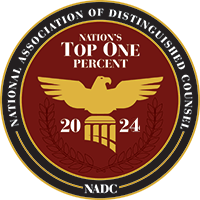












Counterfeiting is a serious crime that affects businesses and consumers alike. Imagine purchasing a designer handbag, only to later discover it’s a fake, or even worse, receiving counterfeit money as change. These scenarios are not just inconvenient; they are part of a larger, troubling issue that impacts the global economy.
Counterfeiting involves the unauthorized imitation of a genuine item, often for financial gain. This crime extends beyond money, affecting consumer goods like clothing, electronics, and even pharmaceuticals. As counterfeit goods become more sophisticated, it’s increasingly difficult for individuals and businesses to identify fake products, posing significant risks to health and safety.
Given the complexities and the widespread impacts of counterfeiting, it’s crucial to understand how to combat this issue. Exploring counterfeiting laws offers insight into the legal landscape, helping to protect both consumers and legitimate companies from the harms of fake goods. Join us as we delve into the intricacies of this critical subject.
When it comes to combating counterfeiting, both federal and state laws play crucial roles.
The main federal statute related to counterfeiting falls under 18 U.S. Code Chapter 25. Important sections include:
§ 471: This law addresses the creation of counterfeit obligations or securities.
§ 472: This section punishes anyone who uses or possesses counterfeit items with the intent to defraud.
§ 474: Covers the use of plates, stones, and digital images for counterfeiting.
Violating these laws can lead to severe penalties, including substantial fines and lengthy prison sentences.
Each state has its own set of counterfeiting laws. In Illinois, counterfeiting can involve fraudulent documents, fake currency, or counterfeit products. The penalties vary depending on the offense, with potential sentences including fines and imprisonment.
Agencies like the FBI and Secret Service work together to tackle counterfeiting. They coordinate efforts to identify and dismantle criminal networks involved in the illegal production of counterfeit items.
Counterfeiting often infringes on intellectual property rights. This illegal practice harms businesses and consumers by undermining the market for genuine products. Federal and state laws help protect both the economy and intellectual property.
Generally classified as a Class 3 felony, forgery involves the creation, alteration, or use of any document, including currency, with the intent to defraud. For instance, creating a fake currency that mimics genuine money. Methods used in this crime range from sophisticated printing processes to simpler techniques using regular printers and scanners. It attracts a punishment between two and five years in prison and fines of up to $25,000.
The unauthorized use of trademarks, including counterfeiting, is a crime in Illinois. It is illegal to manufacture, distribute, or sell counterfeit trademarks. This can include any goods that bear counterfeit trademarks or are fraudulently labeled (e.g., knockoffs or fake versions of popular products usually of low quality).
The penalty for committing this offense depends on the value of the counterfeit goods. Where the total retail value of the goods is below $300, it is a Class A misdemeanor. If the value is above $300, it is a Class 3 felony. The penalties may escalate where serious bodily harm or death is caused as a result of the offense.
Counterfeiting documents is another serious crime. This can include creating, possessing and using fake Identification cards, such as passports or driver’s licenses. Using or creating these false documents can result in severe legal consequences, including significant prison time and hefty fines. Authorities take these offenses very seriously due to the potential risks to security.
By understanding these different types of counterfeiting crimes, we can better grasp the broad scope of this issue and its impact on society.
When facing counterfeiting charges, there are several defense strategies we can employ to protect our clients.
Lack of Intent: One common defense strategy is proving the lack of intent. We can argue that the accused did not knowingly engage in counterfeiting activities. If we can establish that our client was unaware that the money or goods were counterfeit, this can significantly help in their defense.
Insufficient Evidence: Another approach is highlighting insufficient evidence. This involves scrutinizing the prosecution’s evidence for any gaps or weaknesses. If the evidence linking our client to the counterfeiting activity is weak or circumstantial, it may lead to a dismissal of the charges.
Mistaken Identity: Mistaken identity is also another defense. It’s possible that our client was wrongly identified as the perpetrator. We can investigate and provide alibis or other evidence to prove that our client was not involved in the counterfeiting crime.
An experienced criminal defense lawyer can evaluate your case’s strengths and weaknesses. They can also seek a dismissal or reduction in the charges, as well as advise on an effective defense strategy if the case goes to trial. This can be crucial when dealing with counterfeiting charges.
Our defense strategies aim to provide the best possible outcome for our clients, ensuring that their rights are protected throughout the legal process.
Facing a forgery charge can be a stressful experience. Our team at Hirsch Law Group is well-versed in defending against such accusations. We understand the legal consequences and can develop strong defense strategies to protect your rights. Beyond forgery, we can also offer guidance to those involved in check fraud. Protecting your business from financial losses is critical, and we are here to provide essential strategies for safeguarding your company.
We offer personalized defense plans tailored to each client’s unique situation. This customized approach ensures that you receive the best possible defense. We provide a free consultation to discuss your case and answer any questions you may have. This allows us to understand your needs and craft a legal strategy that fits your circumstances.
Located in Illinois? We are ready to help with legal representation for various criminal offenses. Contact us today. Don’t face these challenges alone; let us help you navigate the legal system and work towards a favorable outcome.